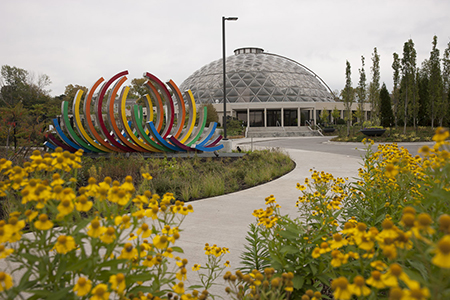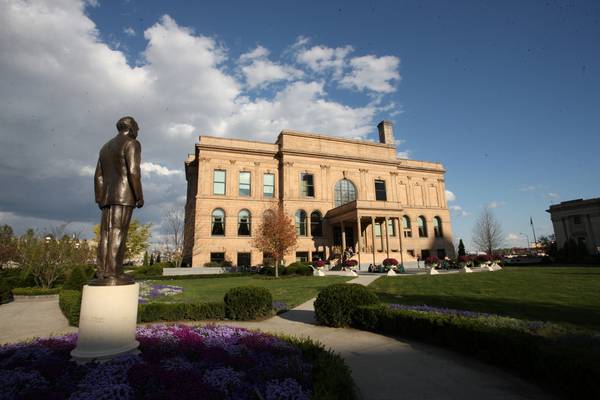Celebrating Crop Diversity: Connecting Agriculture, Public Gardens, and Science
Tuesday April 2 to Thursday April 4, 2019
Des Moines, Iowa
Food and Agriculture Community Symposium
Hosts: World Food Prize Foundation and Greater Des Moines Botanical Garden
REGISTRATION IS NOW CLOSED.
Stories about food connect all of us!
Don’t miss this opportunity to take part when we pair cutting-edge agroecosystem science with innovative public garden interpretation and help tackle food security, build urban community inclusion, conserve crop diversity, and engage youth in programs that actually lead to plant careers!
Want to try stalking crop wild relatives in your own backyard? Find out about application of crop wild relatives in sustainable agriculture, improvement of crops, application of sustainable development goals, and public engagement.

This rare opportunity has been made possible by a unique collaboration between the American Society of Agronomy, Crop Science Society of America, the American Public Gardens Association, and the World Food Prize Foundation to bring together the public garden world and the agro-ecosystem research community. This symposium and accompanying projects will capitalize on a systematic connection between public gardens and the agro-ecosystem communities to significantly enhance the value of the U.S. agricultural and horticultural research and education.

When plant breeding research and industry communities pair with the public garden-based crop-wild relative research and germplasm repository community, prepare to kick-off visionary strategies that will achieve far reaching targets! Sessions will address international and legal aspects of crop wild relative germplasm collection, target lists and collections networks, conservation and breeding applications, food security, and social justice, all while inspiring scientists and educators to change the crop wild relative issue in our own backyards and globally!
For those who wish to engage and bring agriculture and research to public audiences, sessions will provide tools for collaborations to bring cutting edge science into exhibits, build urban community inclusion through agriculture, address interpretation and engagement between universities and their gardens, and engage community youth in programs that actually lead to careers in agriculture, horticulture, or natural resource science.
This symposium has been made possible by a grant project funded by the United States Department of Agriculture-National Institute of Food and Agriculture, in partnership with the U.S. Botanic Garden and with generous support also provided by Leichtag Commons.



